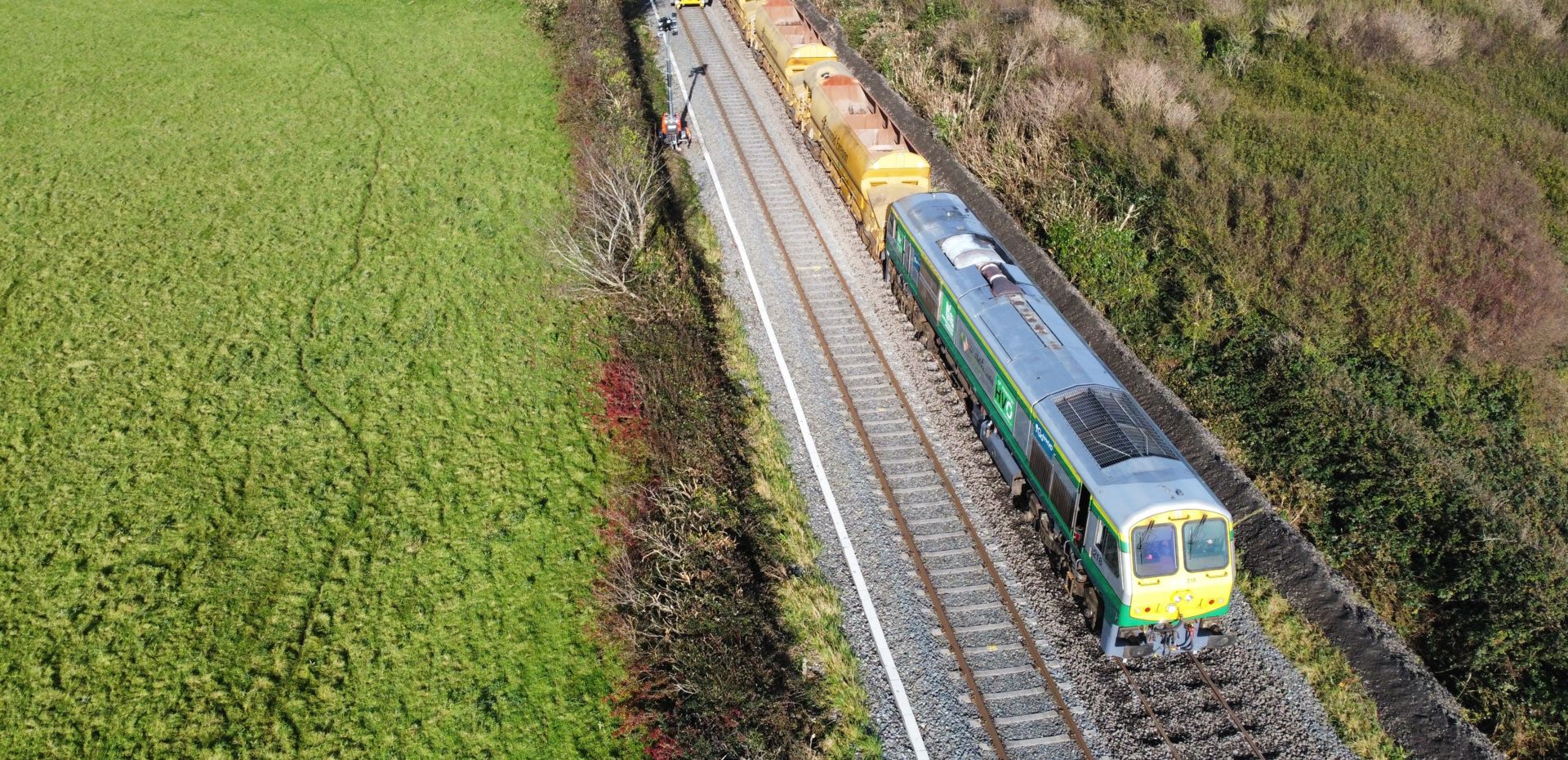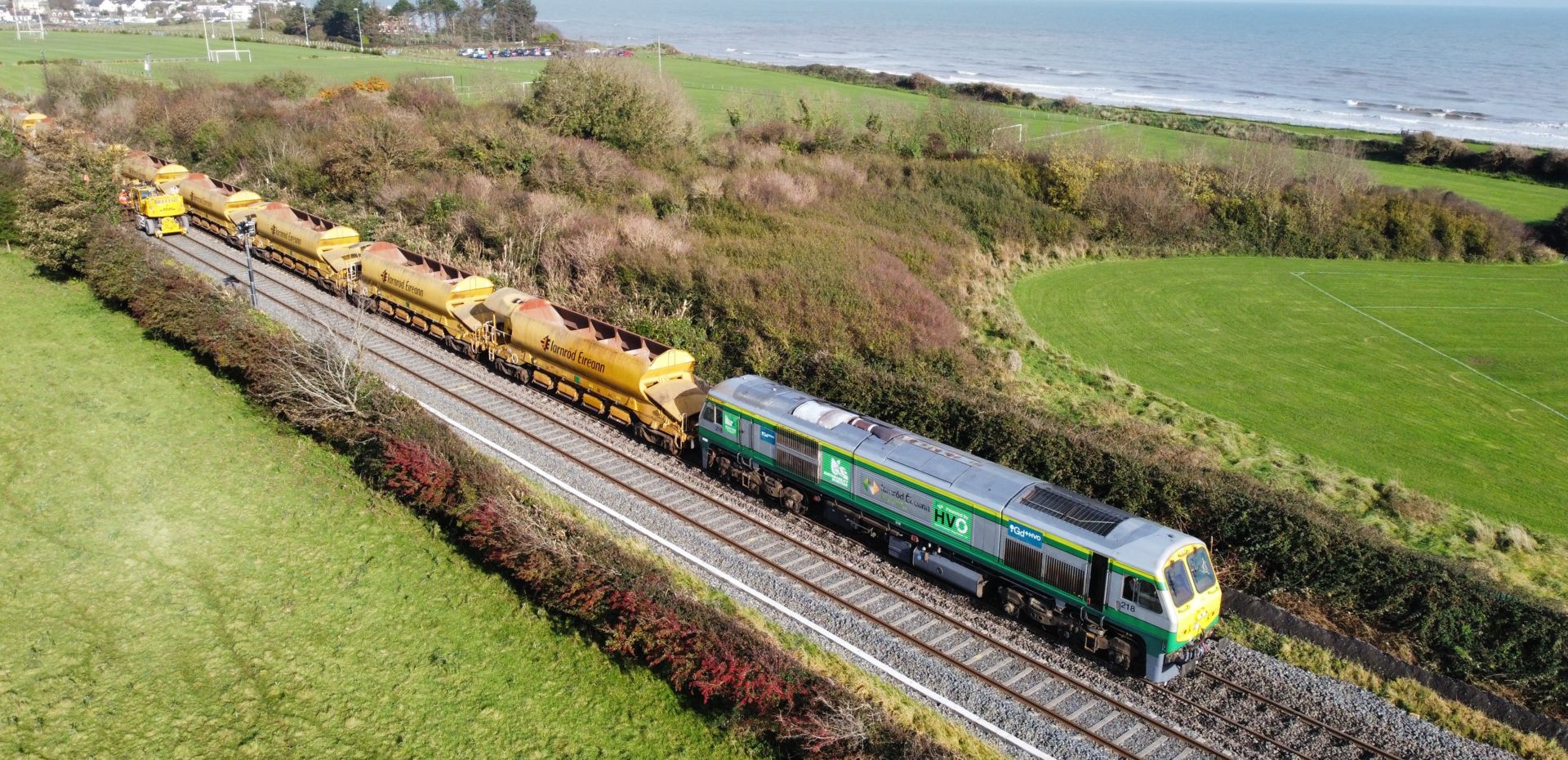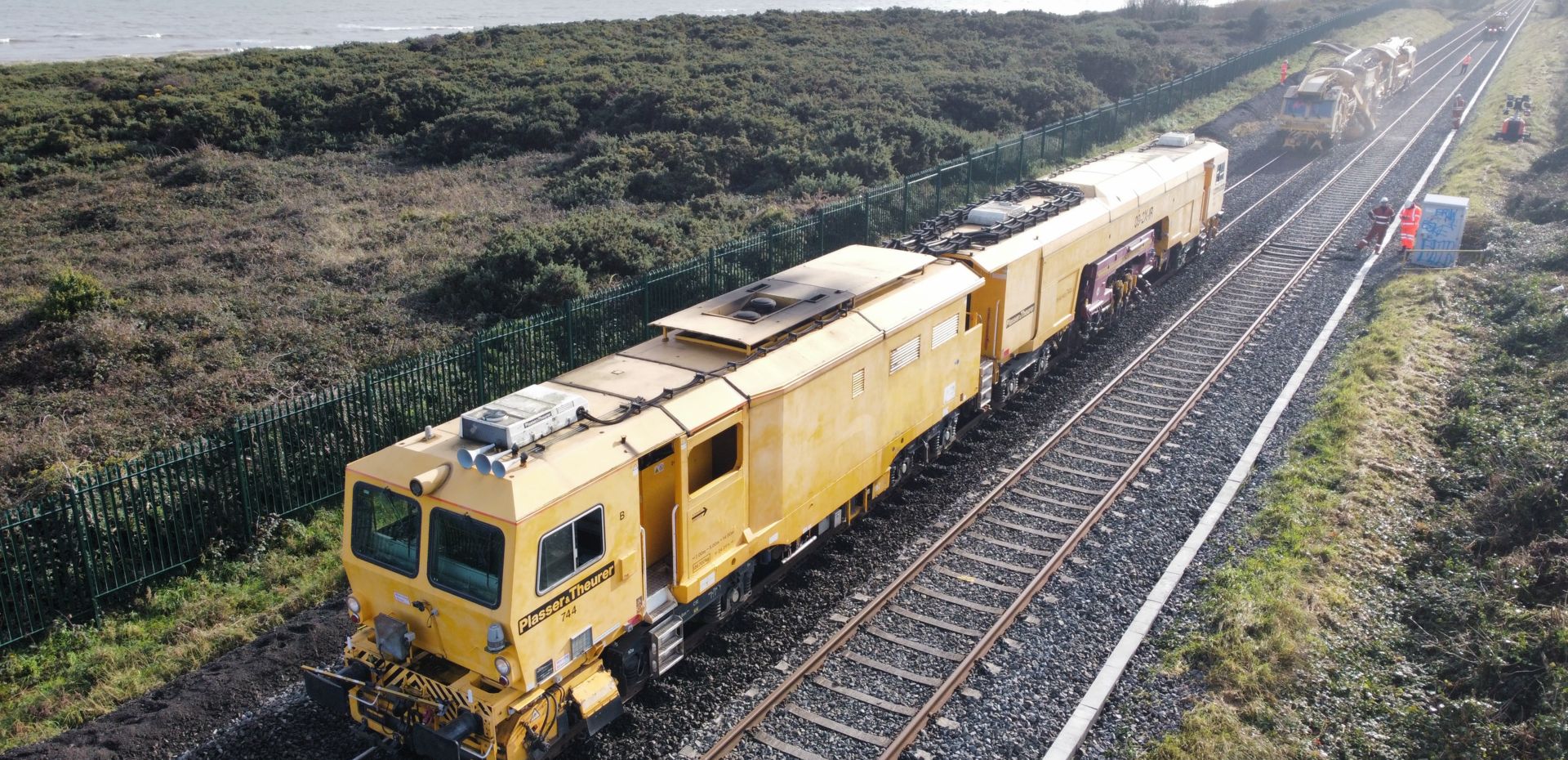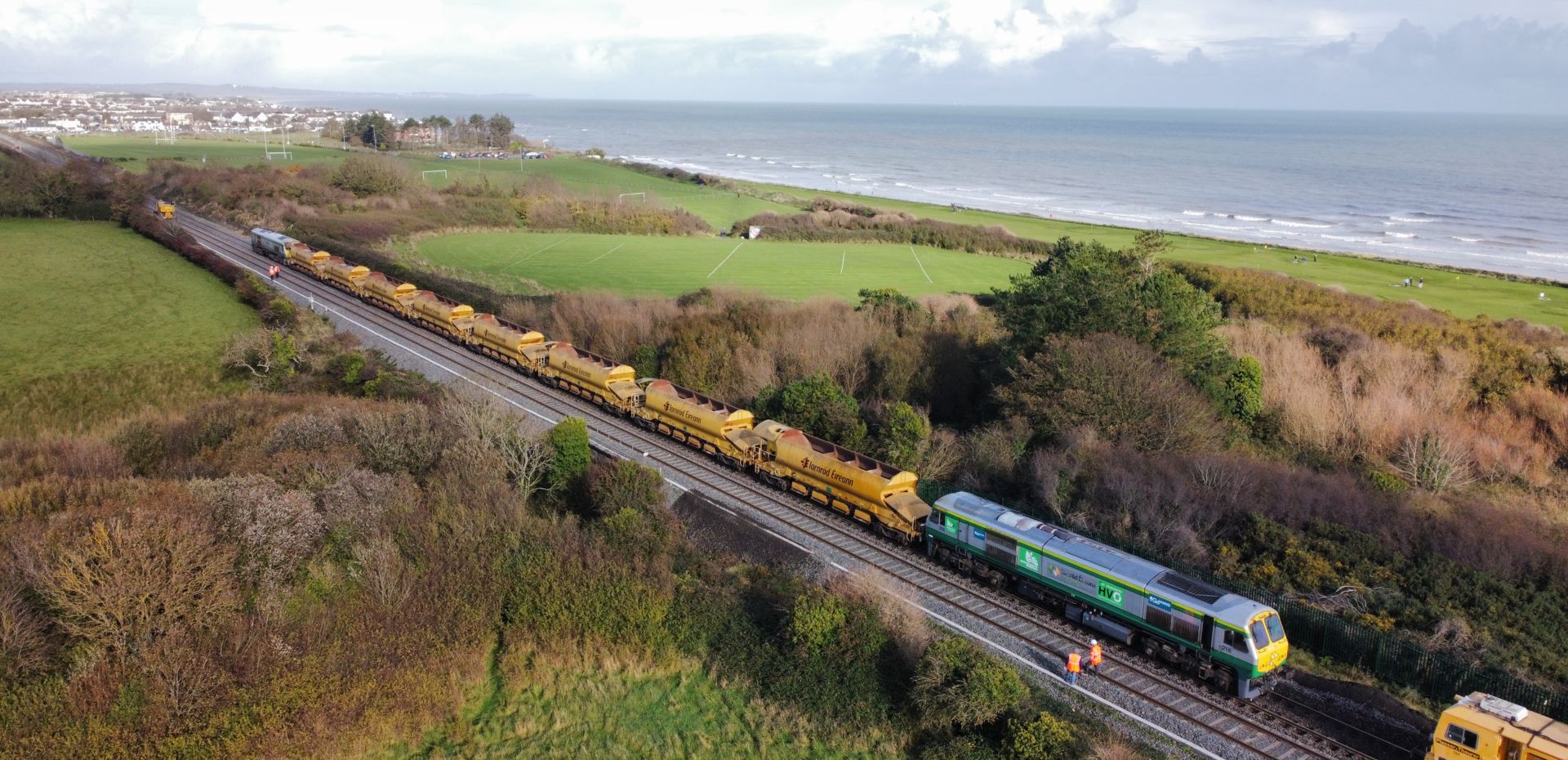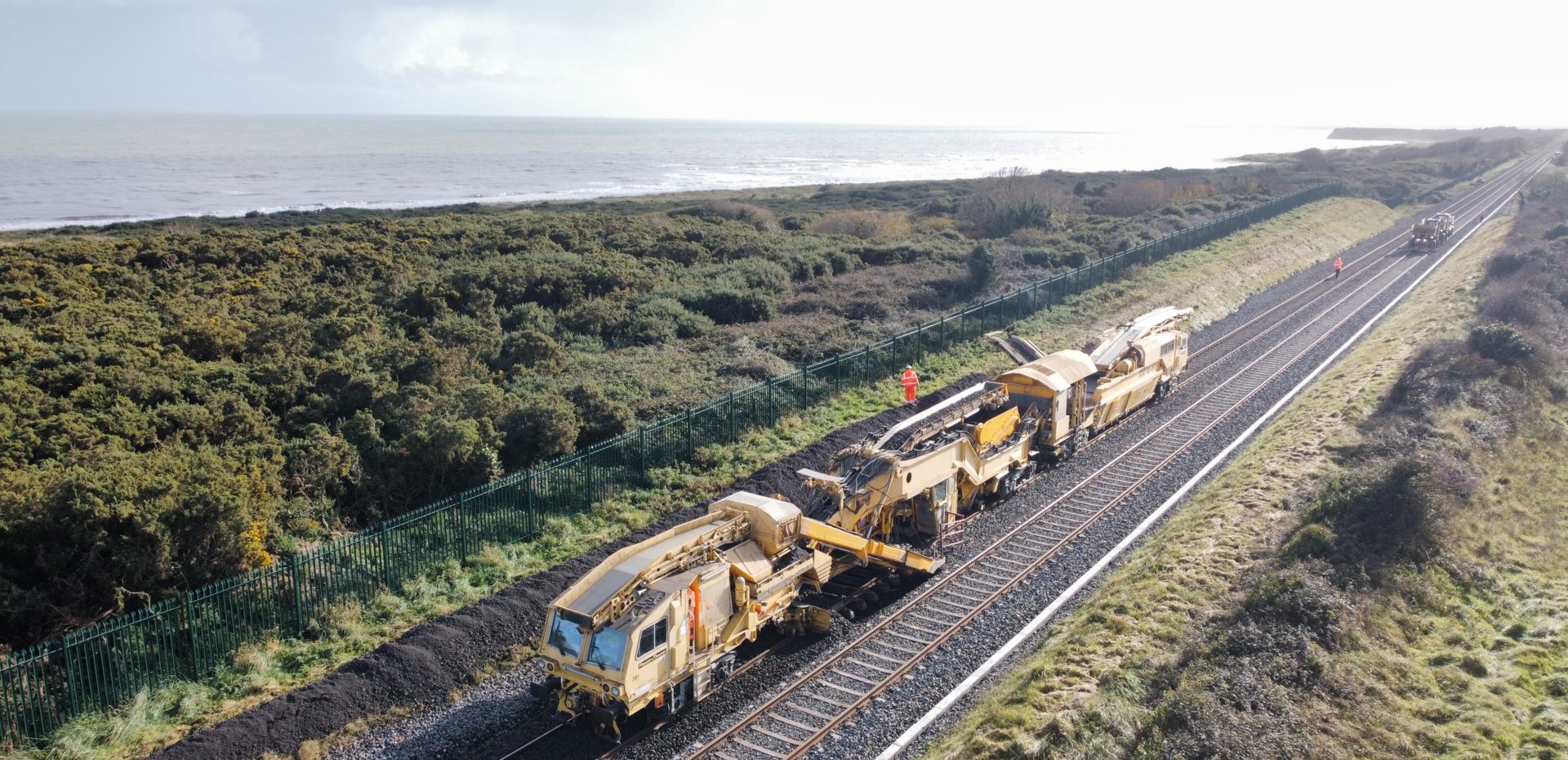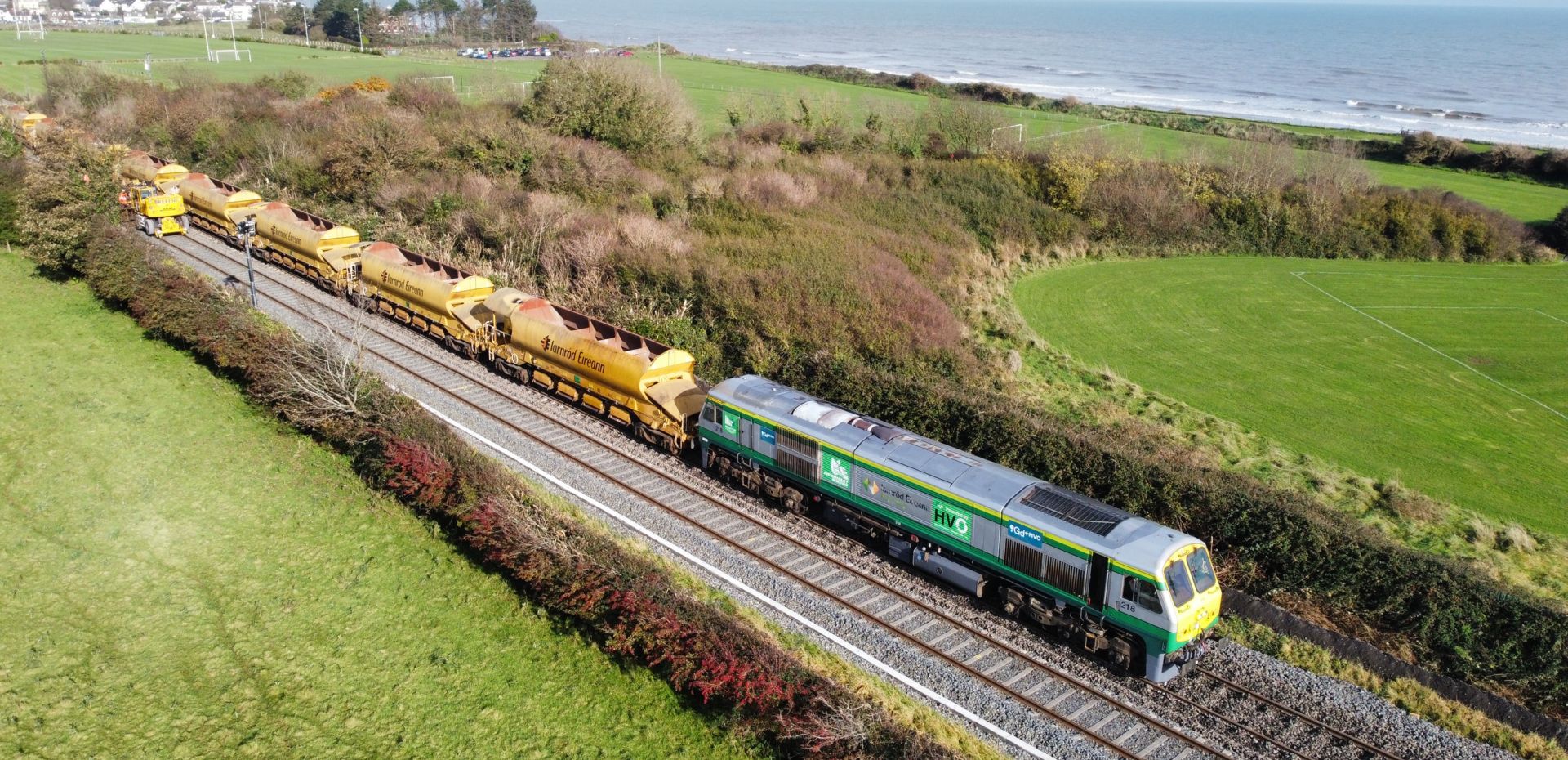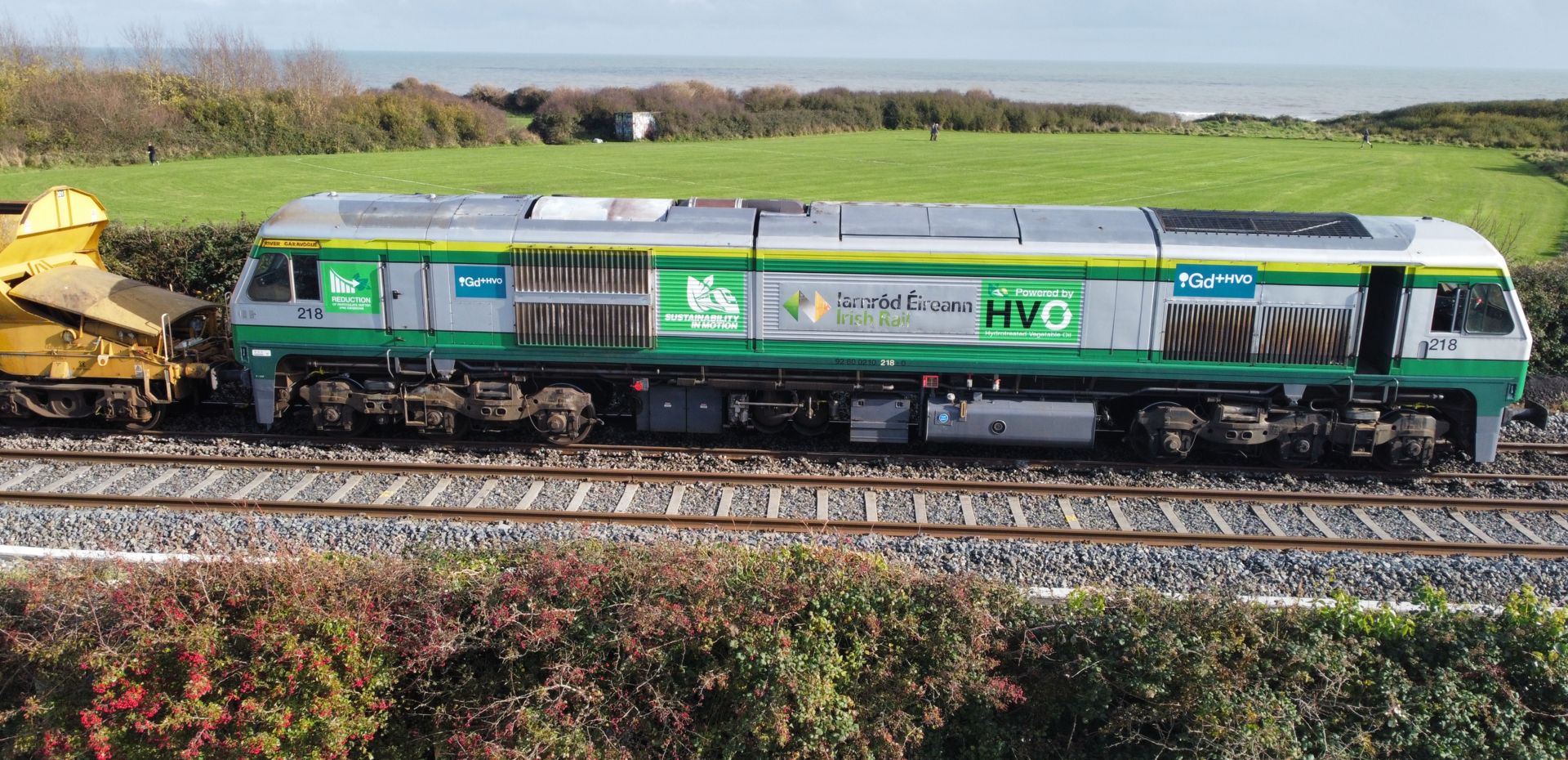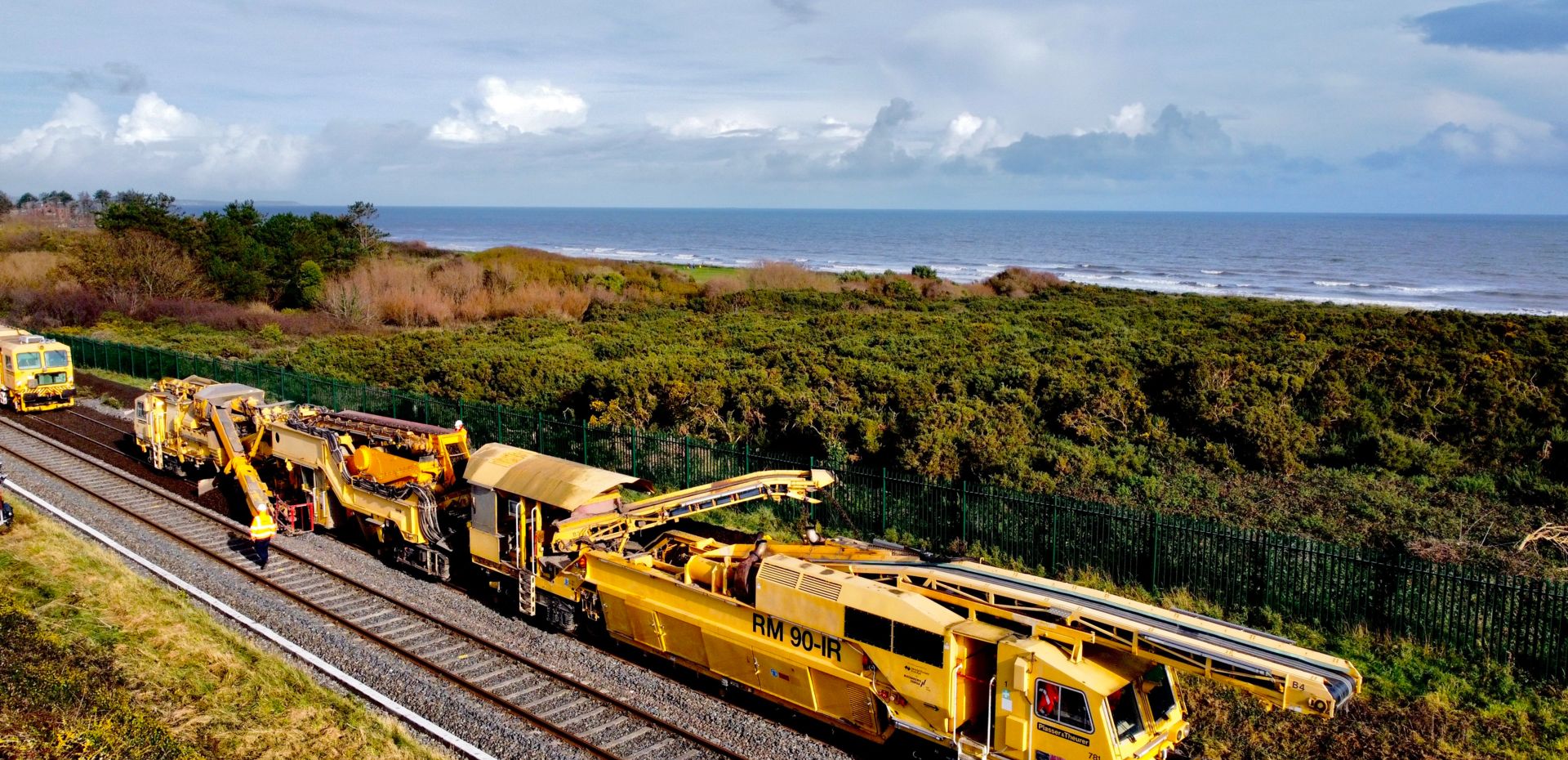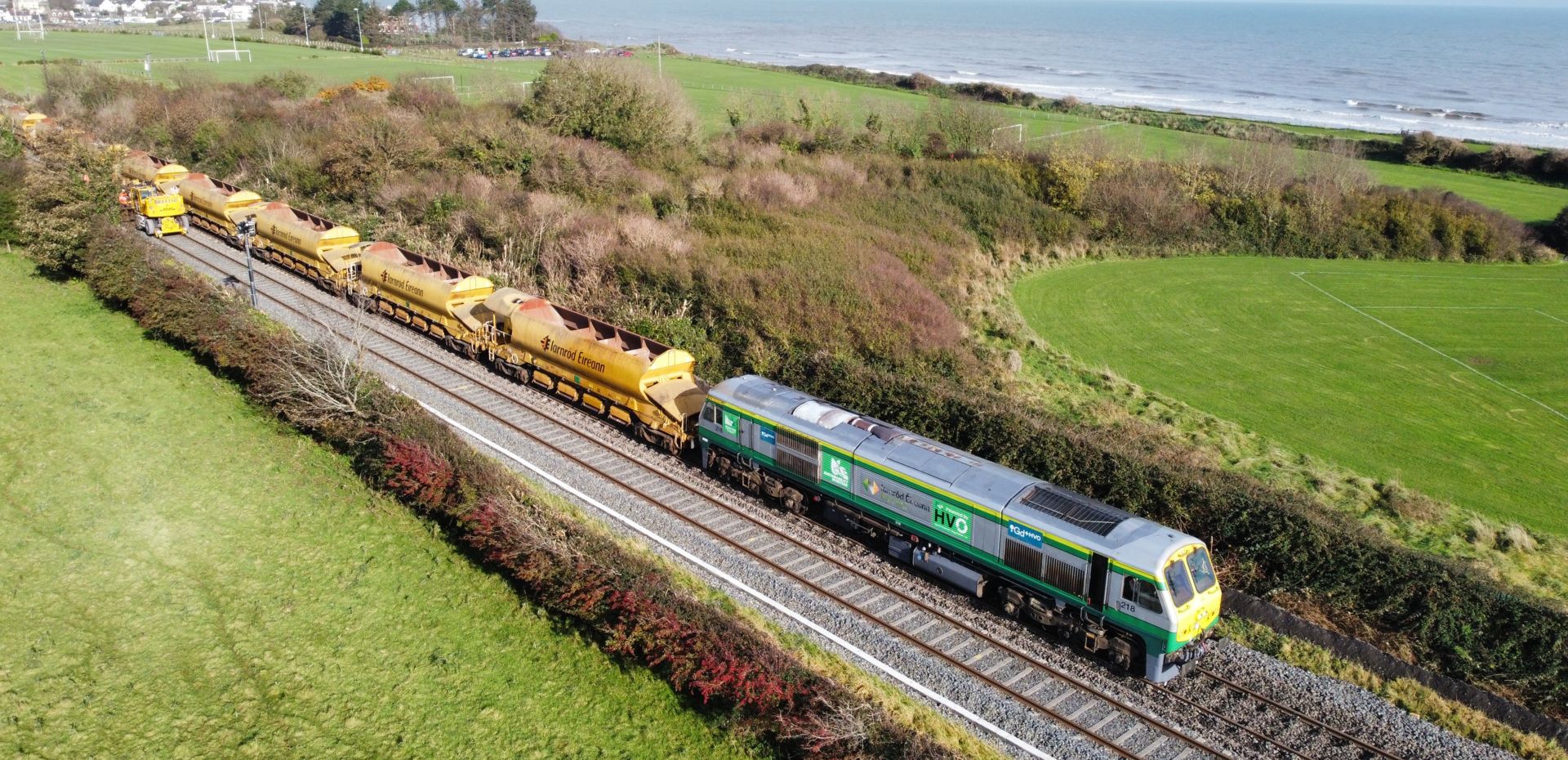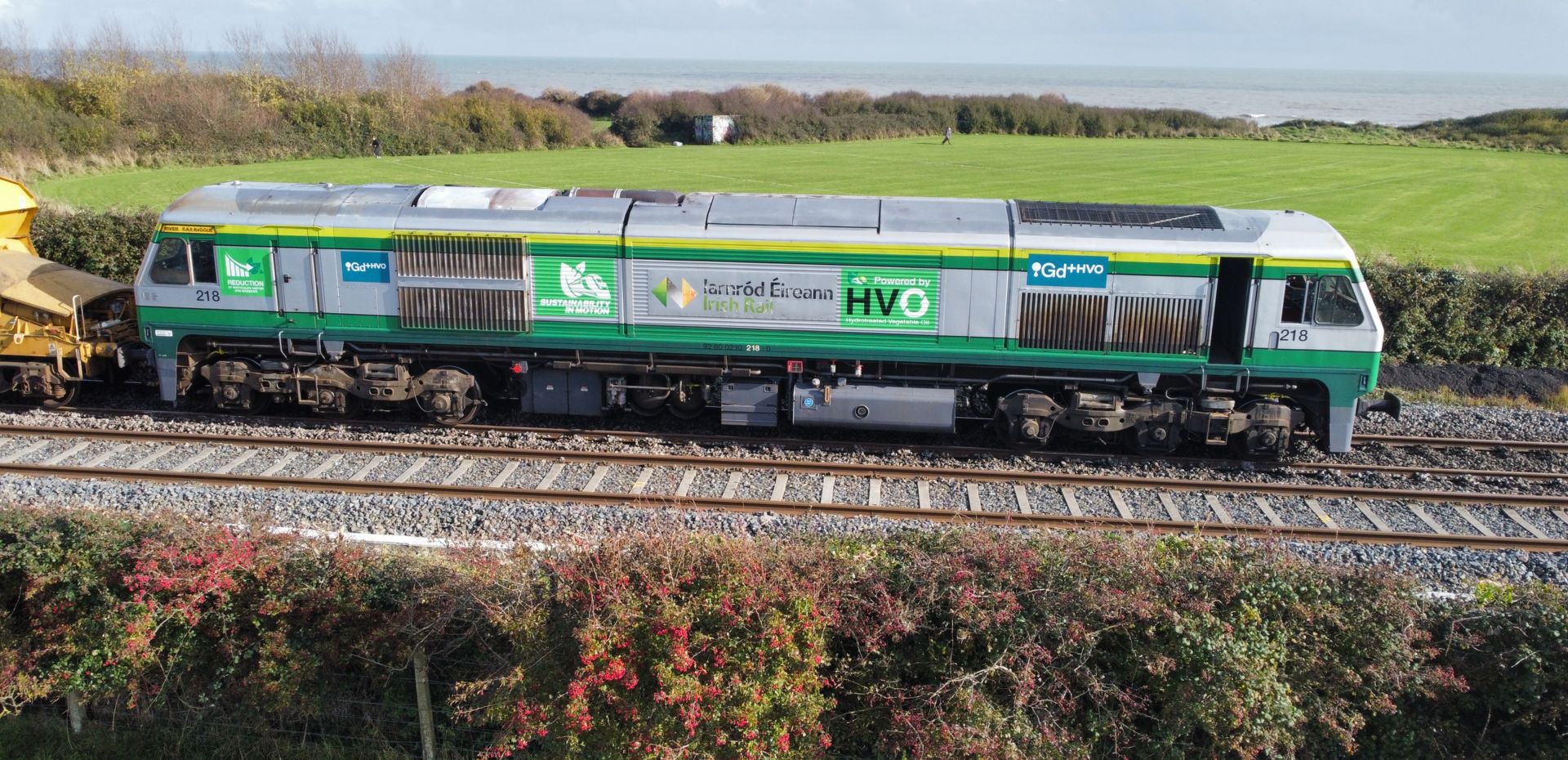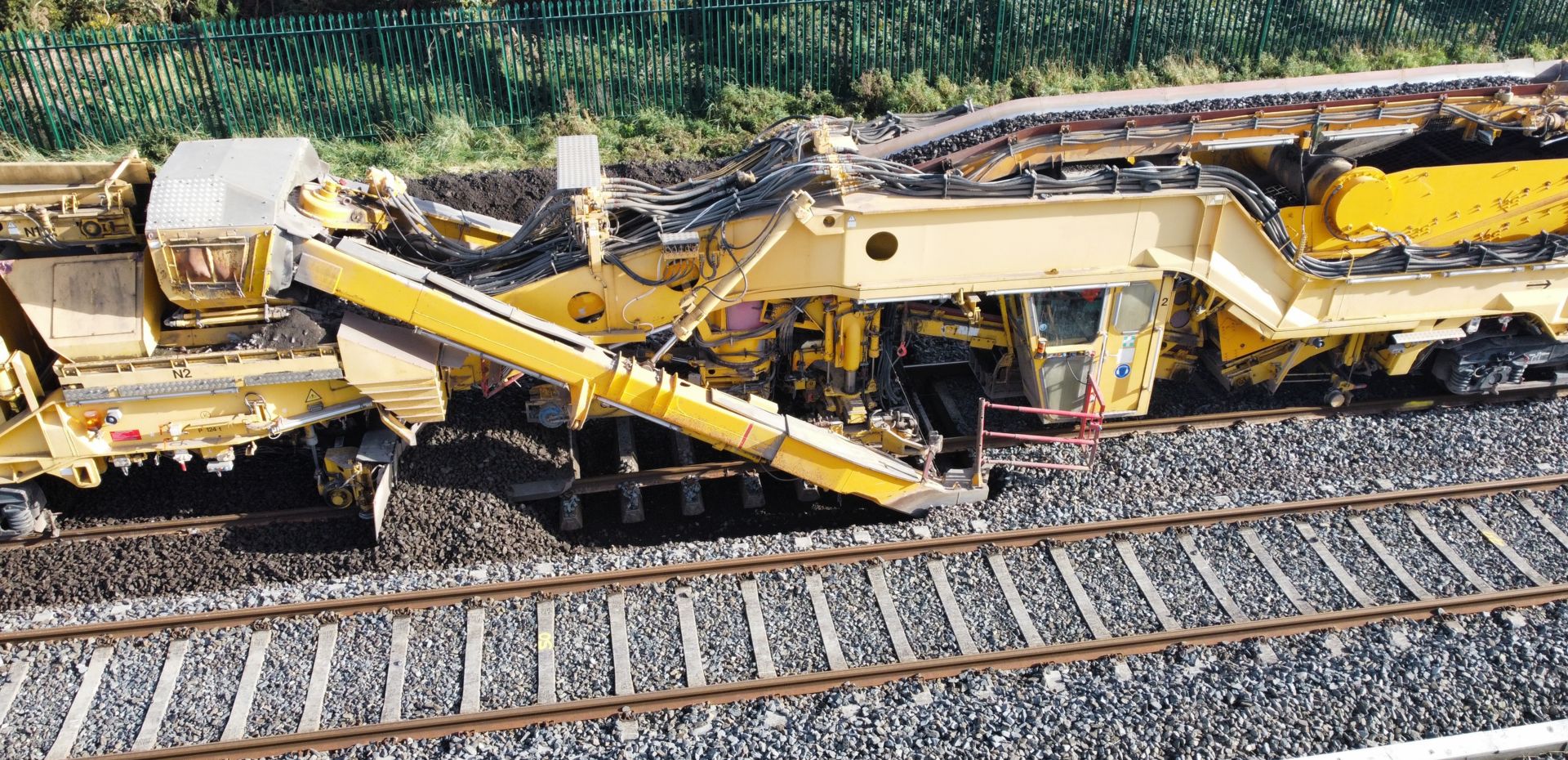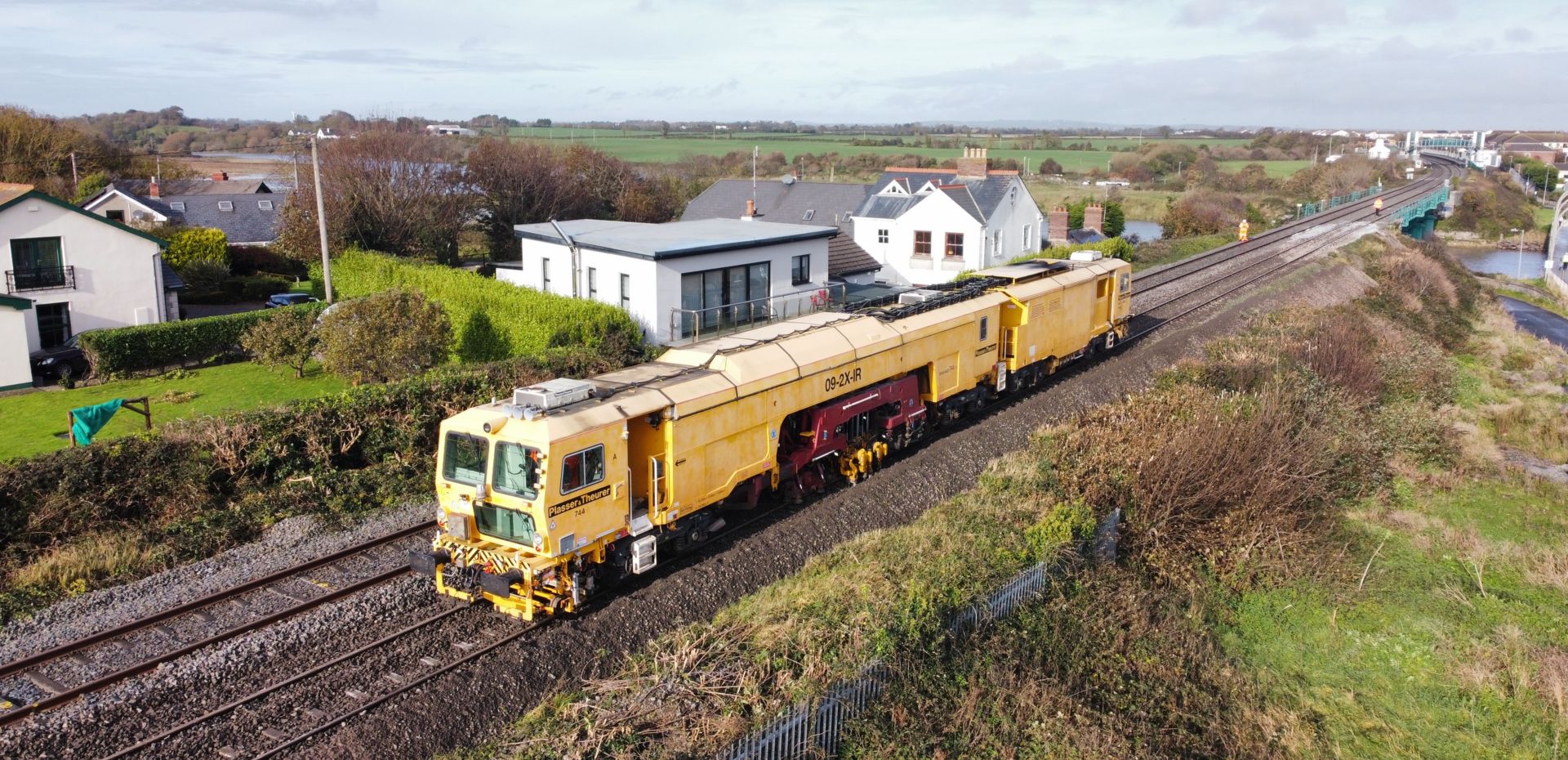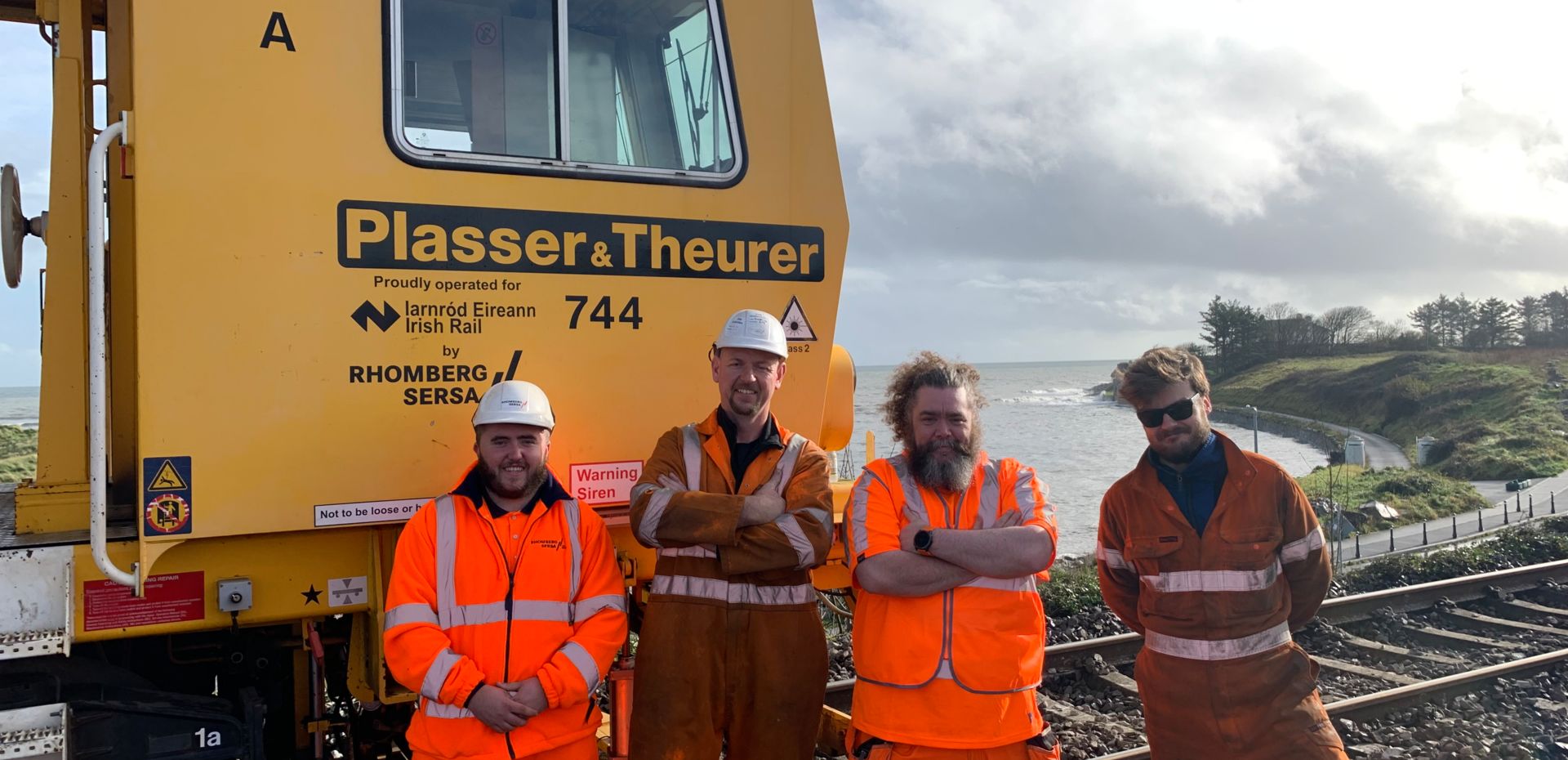Irish Rail's Historic Low Carbon Work Site
For the first time in its history, Iarnród Éireann - Irish Rail (IÉ) hosted a net zero ballast cleaning site
 global
global
 Austria
Austria
 Germany
Germany
 Switzerland
Switzerland
 United Kingdom
United Kingdom
 Ireland
Ireland
 Australia
Australia
 North America
North America
 Nordics
Nordics
For the first time in its history, Iarnród Éireann - Irish Rail (IÉ) hosted a net zero ballast cleaning site
The historic first meant that all machinery and facilities used on site were operated on alternative biofuel and power sources. This resulted in a 90% reduction on the typical carbon emissions from such a work site.
The works took place between Mosney and Laytown on the Dublin-Belfast line during the October Bank Holiday weekend.
Three quarters of a mile of ballast - the stone under the rail track - was removed and replaced with the assistance of contractors including Rhomberg Sersa.
Irish Rail invested significant time planning the works in order to reduce the carbon emissions as much as possible.
All plant, engine power, vehicles, OTMs and small tools were operated on either bio fuel, solar or batteries. As a result, there was a 90% reduction in the carbon emissions. The remaining 10% was offset by planting 300 trees in Wexford, resulting in a net zero worksite.
All of the On Track Machines (OTMs) on site - which are operated and maintained by Rhomberg Sersa on behalf of Irish Rail - ran on Hydrotreated Vegetable Oil (HVO). All the commissioned OTMs were converted to HVO earlier in 2023.
Road Rail Vehicles (RRVs) such as excavators and dumpers also ran on HVO while the welfare facilities primarily ran on solar.
Earlier this year Irish Rail announced its corporate climate action plan 2023 to 2030. It aims to halve its carbon emissions by 2030 and decarbonise completely its diesel locomotive fleet while scaling up electrification and introducing green hydrogen fuel.
The ambitious plan will see the State transport company reducing its emissions by more than 71,000 tonnes of CO2 annually while expanding rail services. This is in line with Government plans to scale up Irish public transport in coming years and reduce car dependency.
In 2022, diesel fuel accounted for 82 per cent of Irish Rail’s overall emissions.
Rhomberg Sersa Rail Group (RSRG) is also working to reduce carbon emissions across the portfolio of 17 companies within the group.
